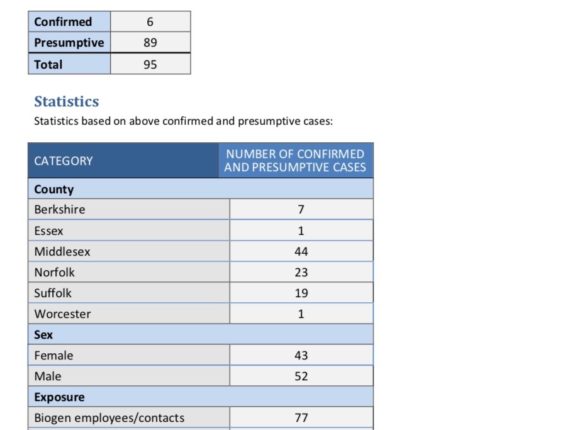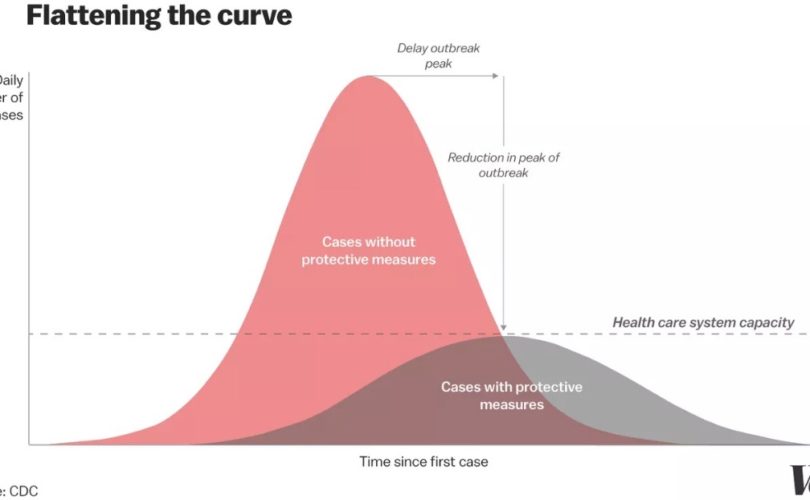By now, we are all well aware of the current state of things: COVID-19 (coronavirus) has been declared as a pandemic by the World Health Organization (WHO) and Governor Charlie Baker has declared a state of emergency in our home of Massachusetts due to the multiplying positive, presumptive positive, and individuals subject to quarantine across the state.

Coronavirus disease cases in MA as of March 11, 2020
Here you can find the most up to date report of cases from the MA Department of Public Health.
With an illness like this, the first segment of the population most begin to worry about are individuals over 60 years old, which is most definitely important. But what about people with disabilities?
The risk remains low to the general public, but people with many types of disabilities, compromised immune systems, and chronic illnesses are at a higher risk than others, and that includes many of PYD’s youth participants, adult volunteers, staff, and family members.
The CDC reported that older people and people with chronic medical conditions are at risk for serious illness as a result of contracting the coronavirus.
For those with weakened or compromised immune systems, their bodies have a harder time fighting off disease. For those with chronic illnesses, it may take them longer to recover than those in better health.
Not to mention that managing COVID-19 on top of symptoms of other health complications is significantly more challenging.
How can we help?
Many people have already started practicing social distancing, which is an infection control action that’s taken to stop the spread of disease. Social distancing can take many forms such as avoiding public transportation and working from home, choosing to opt out of large group gatherings like concerts or sports games, and more.
According to Harvard Health, “Social distancing refers to actions taken to stop or slow down the spread of a contagious disease.”
Social distancing is an important action to take for those at high risk from COVID-19, including people with disabilities, but it’s also a very important action for those at low risk to take as well. The more people that practice social distancing, we create fewer opportunities for COVID-19 to spread to people who are most vulnerable to it and reduce the strain on our healthcare system.
So even if you are young and in good health, it’s not overreacting to practice social distancing right now. By doing so, you’re helping protect your friends, family, and coworkers with disabilities and chronic illnesses.
Learn more about the importance of social distancing here.
Here are some ways you can support your loved ones who are practicing social distancing:
- Be understanding if they must cancel plans.
- Due to the potential increased impact of COVID-19 for a person with a disability, it may be in their best interest to cancel previous plans for their own health and well-being. In order for that person to feel supported, try your best to let them know their concerns are valid, and make time to reschedule.
- If they are practicing any level of social distancing, check in on them via text, phone call, or FaceTime instead of going to visit them. This isn’t to say you can’t meet up, but check on their comfort level before doing so.
- If you’ve been exposed or potentially exposed to the virus, make your friend or family member aware before interacting or spending time with them.
- Taking care of yourself is ultimately in your friends’ best interest as well! You can stay up to date on where the virus has spread to ensure you yourself haven’t potentially come into contact with it with this link.
- Before meeting with them, be sure to wash your hands and continuously refrain from touching your face.
- The CDC enforces everyone to wash their hands for at least 20 seconds
- Avoid touching your eyes, nose, and mouth with unwashed hands
- Avoid close contact with infected persons
- Stay home if you’re sick
- Read more in depth recommendations from the CDC here.
- Be aware of how it is spread and what the symptoms are.
- The virus is spread through respiratory secretions (cough, sneeze) from an infected person to another person.
- Symptoms include fever, cough, and shortness of breath.
- Read more on the CDC website at this link.
What are we doing at PYD to help?
- PYD has asked staff to work remotely through the end of March to minimize the exposure to our youth.
- At a minimum of the next two weeks, we are transitioning all programming to online as much as possible. If anyone needs accommodations to engage in this format (like captions,) we’re prepared to provide them.
- We plan to cancel programming that cannot be facilitated online.
Click here for the most up to date and accurate news on Coronavirus in Massachusetts, so together we can help protect our youth and all people with disabilities.

